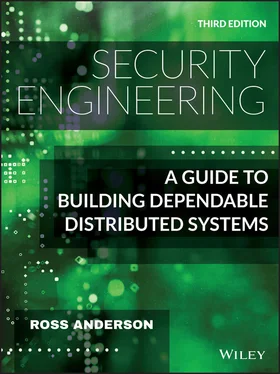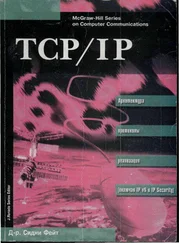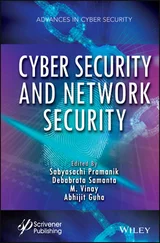Not all corporate attacks are conducted as openly. Perhaps the best-known covert hack was by Volkswagen on the EU and US emissions testing schemes; diesel engines sold in cars were programmed to run cleanly if they detected the standard emission test conditions, and efficiently otherwise. For this, the CEO of VW was fired and indicted in the USA (to which Germany won't extradite him), while the CEO of Audi was fired and jailed in Germany [1086]. VW has set aside €25bn to cover criminal and civil fines and compensation. Other carmakers were cheating too; Daimler was fined €860m in Europe in 2019 [1468], and in 2020 reached a US settlement consisting of a fine of $1.5bn from four government agencies plus a class action of $700m [1859]. Settlements for other manufacturers and other countries are in the pipeline.
Sometimes products are designed to break whole classes of protection system, an example being the overlay SIM cards described later in Chapter 12. These are SIM cards with two sides and only 160 microns thick, which you stick on top of the SIM card in your phone to provide a second root of trust; they were designed to enable people in China to defeat the high roaming charges of the early 2010s. The overlay SIM essentially does a man-in-the-middle attack on the real SIM, and can be programmed in Javacard. A side-effect is that such SIMs make it really easy to do some types of bank fraud.
So when putting together the threat model for your system, stop and think what capable motivated opponents you might have among your competitors, or among firms competing with suppliers on which products you depend. The obvious attacks include industrial espionage, but nowadays it's much more complex than that.
Intelligence agencies, and secretive firms, can get obsessive about ‘the insider threat’. But in 2018, Barclays Bank's CEO was fined £642,000 and ordered to repay £500,000 of his bonus for attempting to trace a whistleblower in the bank [698]. So let's turn it round and look at it from the other perspective – that of the whistleblower. Many are trying to do the right thing, often at a fairly mundane level such as reporting a manager who's getting bribes from suppliers or who is sexually harassing staff. In regulated industries such as banking they may have a legal duty to report wrongdoing and legal immunity against claims of breach of confidence by their employer. Even then, they often lose because of the power imbalance; they get fired and the problem goes on. Many security engineers think the right countermeasure to leakers is technical, such as data loss prevention systems, but robust mechanisms for staff to report wrongdoing are usually more important. Some organisations, such as banks, police forces and online services, have mechanisms for reporting crimes by staff but no effective process for raising ethical concerns about management decisions 14.
But even basic whistleblowing mechanisms are often an afterthought; they typically lead the complainant to HR rather than to the board's audit committee. External mechanisms may be little better. One big service firm ran a “Whistle-blowing hotline” for its clients in 2019; but the web page code has trackers from LinkedIn, Facebook and Google, who could thus identify unhappy staff members, and also JavaScript from CDNs, littered with cookies and referrers from yet more IT companies. No technically savvy leaker would use such a service. At the top end of the ecosystem, some newspapers offer ways for whistleblowers to make contact using encrypted email. But the mechanisms tend to be clunky and the web pages that promote them do not always educate potential leakers about either the surveillance risks, or the operational security measures that might counter them. I discuss the usability and support issues around whistleblowing in more detail in section 25.4.
This is mostly a policy problem rather than a technical one. It's difficult to design a technical mechanism whereby honest staff can blow the whistle on abuses that have become ingrained in an organisation's culture, such as pervasive sexual harassment or financial misconduct. In most cases, it's immediately clear who the whistleblower is, so the critical factor is whether the whistleblower will get external support. For example, will they ever get another job? This isn't just a matter of formal legal protection but also of culture. For example, the rape conviction of Harvey Weinstein empowered many women to protest about sexual harassment and discrimination; hopefully the Black Lives Matter protests will similarly empower people of colour [32].
An example where anonymity did help, though, was the UK parliamentary expenses scandal of 2008–9. During a long court case about whether the public could get access to the expense claims of members of parliament, someone went to the PC where the records were kept, copied them to a DVD and sold the lot to the Daily Telegraph. The paper published the juicy bits in instalments all through May and June, when MPs gave up and published the lot on Parliament's website. Half-a-dozen ministers resigned; seven MPs and peers went to prison; dozens of MPs stood down or lost their seats at the following election; and there was both mirth and outrage at some of the things charged to the taxpayer. The whistleblower may have technically committed a crime, but their action was clearly in the public interest; now all parliamentary expenses are public, as they should have been all along. If a nation's lawmakers have their hands in the till, what else will clean up the system?
Even in the case of Ed Snowden, there should have been a robust way for him to report unlawful conduct by the NSA to the appropriate arm of government, probably a Congressional committee. But he knew that a previous whistleblower, Bill Binney, had been arrested and harassed after trying to do that. In hindsight, that aggressive approach was unwise, as President Obama's NSA review group eventually conceded. At the less exalted level of a commercial firm, if one of your staff is stealing your money, and another wants to tell you about it, you'd better make that work.
Our third category of attacker are the people like me – researchers who investigate vulnerabilities and report them so they can be fixed. Academics look for new attacks out of curiosity, and get rewarded with professional acclaim – which can lead to promotion for professors and jobs for the students who help us. Researchers working for security companies also look for newsworthy exploits; publicity at conferences such as Black Hat can win new customers. Hobby hackers break into stuff as a challenge, just as people climb mountains or play chess; hacktivists do it to annoy companies they consider to be wicked. Whether on the right side of the law or not, we tend to be curious introverts who need to feel in control, but accept challenges and look for the ‘rush’. Our reward is often fame – whether via academic publications, by winning customers for a security consulting business, by winning medals from academic societies or government agencies, or even on social media. Sometimes we break stuff out of irritation, so we can circumvent something that stops us fixing something we own; and sometimes there's an element of altruism. For example, people have come to us in the past complaining that their bank cards had been stolen and used to buy stuff, and the banks wouldn't give them a refund, saying their PIN must have been used, when it hadn't. We looked into some of these cases and discovered the No-PIN and preplay attacks on chip and PIN systems, which I'll describe in the chapter on banking (the bad guys had actually discovered these attacks, but we replicated them and got justice for some of the victims).
Security researchers who discovered and reported vulnerabilities to a software vendor or system operator used to risk legal threats, as companies sometimes thought this would be cheaper than fixing things. So some researchers took to disclosing bugs anonymously on mailing lists; but this meant that the bad guys could use them at once. By the early 2000s, the IT industry had evolved practices of responsible disclosure whereby researchers disclose the bug to the maintainer some months in advance of disclosure. Many firms operate bug-bounty programs that offer rewards for vulnerabilities; as a result, independent researchers can now make serious money selling vulnerabilities, and more than one assiduous researcher has now earned over $1m doing this. Since the Stuxnet worm, governments have raced to stockpile vulnerabilities, and we now see some firms that buy vulnerabilities from researchers in order to weaponise them, and sell them to cyber-arms suppliers. Once they're used, they spread, are eventually reverse-engineered and patched. I'll discuss this ecosystem in more detail in the chapters on economics and assurance.
Читать дальше











